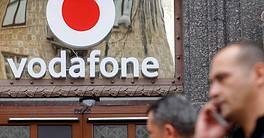Swift moves aggressively to forestall cyberthreats in the financial system
At its annual Sibos customer conference in Geneva next week, the Brussels-based financial messaging network, SWIFT, will seek to reassure its 11,000-strong member banks and securities organizations that it is doing everything within its power to minimize the threat of cyberattacks.
Following a spate of such attacks over the summer on banks connected to its network, SWIFT is on the defensive. CEO Gottfried Leibbrandt is likely to focus on cybersecurity in his opening plenary speech at the Sibos conference on Monday morning. Cybersecurity sessions—exploring new and emerging technologies for detection; practical and strategic approaches for gathering intelligence on cyber attacks; and building a culture of security within banks—are also scheduled throughout the week-long conference in Geneva.
SWIFT has always prided itself on the robustness and comprehensiveness of its security measures. The organization distanced itself from this summer’s attacks, saying its own network was not compromised and that it is the responsibility of individual banks to ensure security controls across SWIFT messaging, payments and e-banking channels. But it is likely to come under increasing pressure from the larger global banks on its network—and that also sit on its board—to ensure that all member banks, no matter their size or IT budgets, are working toward the same cybersecurity objectives. After all, with more than 11,000 banks and securities organizations sending and receiving financial messages on its network, SWIFT is only as strong as its weakest link.

In the wake of the summer hacks, SWIFT updated its software for sending and receiving messages to include enhanced security measures for password management and identifying potential hackers. According to a Reuters article, SWIFT has given banks until November 19 to install the latest version of the software. The article suggests that SWIFT may report banks to national regulators if they fail to meet the November deadline. But with no direct control over how banks implement its software, let alone broader cybersecurity measures, it is difficult to see what impact SWIFT can have in this area.
SWIFT has also enlisted the help of external cybersecurity experts, FOX-IT, to investigate security incidents within customer environments. In collaboration with FOX-IT, SWIFT will conduct forensic investigations on customer premises related to SWIFT products and services. SWIFT’s newly formed Customer Security Intelligence team will also work closely with the third-party security firms.
At the Sibos conference in Geneva, FOX-IT will lead a cyber crisis management workshop with banks, which will simulate cyberattack scenarios and bank responses to them. The workshop is based on one developed for security conferences around the world.
A new SWIFT Customer Security Programme will also encourage greater information sharing on cyber threats and risks amongst banking members. Two Customer Security Programme sessions will be held on Monday and Thursday of Sibos. SWIFT says the information on cyber threats that it shares with banks will be anonymous. However, banks will be reluctant to share information regarding security lapses or breaches given the reputational implications.
There is no question that catching the bad guys will be a recurring theme at Sibos this year, but can SWIFT galvanize enough support from its member banks to help stop the baddies in their tracks?



